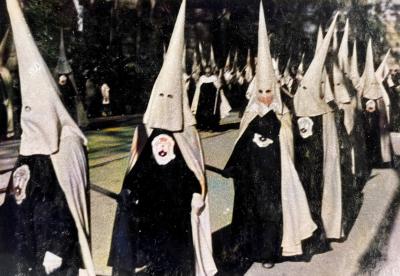How can travelers experience authentic Mallorcan culture through local festivals or events?
Similar Topics
mallorcan culture
local festivals
festa de sant
palma celebrations
festes de sant
st. john’s eve
grape harvest festivals
mallorcan wine culture
Travelers seeking an authentic experience of Mallorcan culture can immerse themselves in the island’s vibrant local festivals and traditional events, which reflect the rich heritage and community spirit of Mallorca. One of the most iconic festivities is the Festa de Sant Sebastià in January, celebrated particularly in Palma. This event honors the city’s patron saint with live music, street parties, and traditional dancing, offering visitors a chance to witness locals coming together in a lively display of communal pride and devotion. During the celebrations, the streets fill with the sounds of bagpipes and brass bands, while food stalls serve up classic Mallorcan dishes, inviting travelers to taste the local flavors alongside the cultural fervor.
Another quintessential cultural experience can be found during the Festes de Sant Joan, or St. John’s Eve, which takes place in June. This midsummer celebration is marked by bonfires, fireworks, and nightly festivities that illuminate the island’s towns and beaches. In coastal villages such as Port d'Alcúdia and Port de Pollença, visitors can enjoy traditional folk dances and music, often accompanied by offerings of ensaïmades, a local pastry that embodies the culinary identity of Mallorca. These gatherings provide a window into the islanders’ relationship with nature, the sea, and the changing of seasons, fostering a connection between travelers and the cultural rhythms of Mallorca.
For those traveling in late summer or early autumn, the grape harvest festivals offer a unique opportunity to explore Mallorcan wine culture. Events in towns like Binissalem or Santa Maria del Camí celebrate the region’s long-standing winemaking traditions with tastings, vineyard tours, and folkloric performances. These events highlight the artisanal craftsmanship that underpins Mallorca’s agricultural heritage. Travelers can engage directly with producers, gaining insight into the local viticulture, while also enjoying traditional dances and music, thus experiencing a harmonious blend of history, gastronomy, and community that defines authentic Mallorcan culture. Through participation in these festivals, visitors do not merely observe traditions but become part of the living cultural fabric of the island.
Another quintessential cultural experience can be found during the Festes de Sant Joan, or St. John’s Eve, which takes place in June. This midsummer celebration is marked by bonfires, fireworks, and nightly festivities that illuminate the island’s towns and beaches. In coastal villages such as Port d'Alcúdia and Port de Pollença, visitors can enjoy traditional folk dances and music, often accompanied by offerings of ensaïmades, a local pastry that embodies the culinary identity of Mallorca. These gatherings provide a window into the islanders’ relationship with nature, the sea, and the changing of seasons, fostering a connection between travelers and the cultural rhythms of Mallorca.
For those traveling in late summer or early autumn, the grape harvest festivals offer a unique opportunity to explore Mallorcan wine culture. Events in towns like Binissalem or Santa Maria del Camí celebrate the region’s long-standing winemaking traditions with tastings, vineyard tours, and folkloric performances. These events highlight the artisanal craftsmanship that underpins Mallorca’s agricultural heritage. Travelers can engage directly with producers, gaining insight into the local viticulture, while also enjoying traditional dances and music, thus experiencing a harmonious blend of history, gastronomy, and community that defines authentic Mallorcan culture. Through participation in these festivals, visitors do not merely observe traditions but become part of the living cultural fabric of the island.
🧩 Related Questions
Related Question
How did women manage cooking and food preparation in the outdoor and rustic setting of the olive harvest?
Related Question
What time of year is the best to visit Mallorca to experience its agricultural festivals?
Related Question
How do fig trees contribute to the cultural identity of Mallorca beyond just their fruit?
